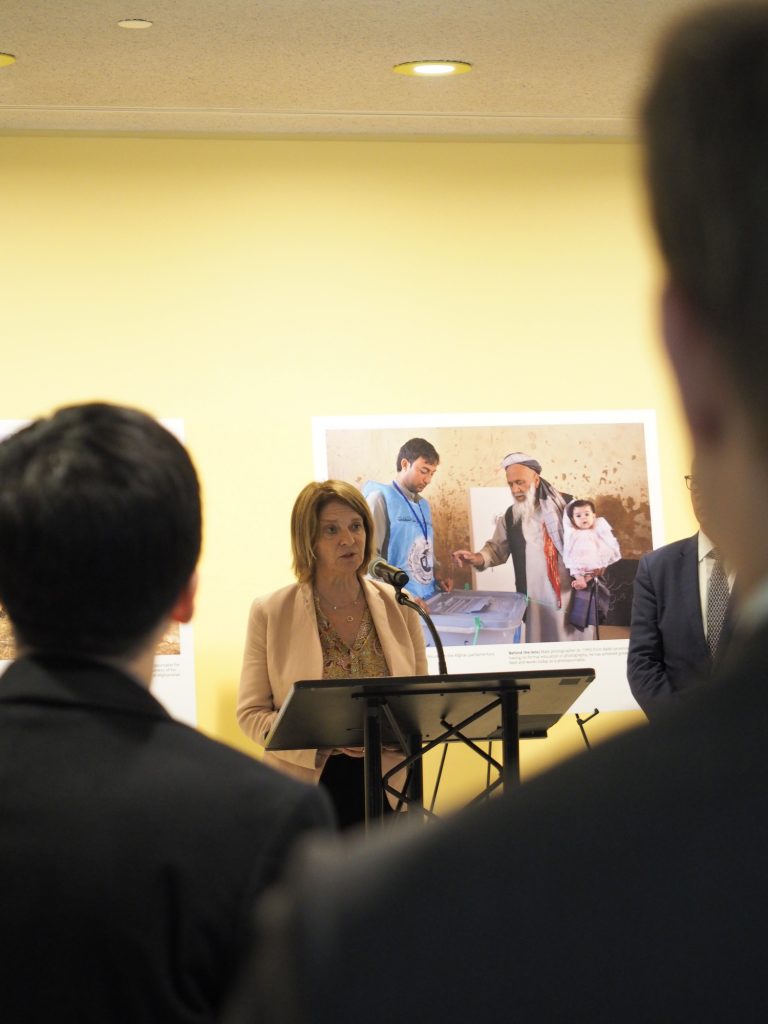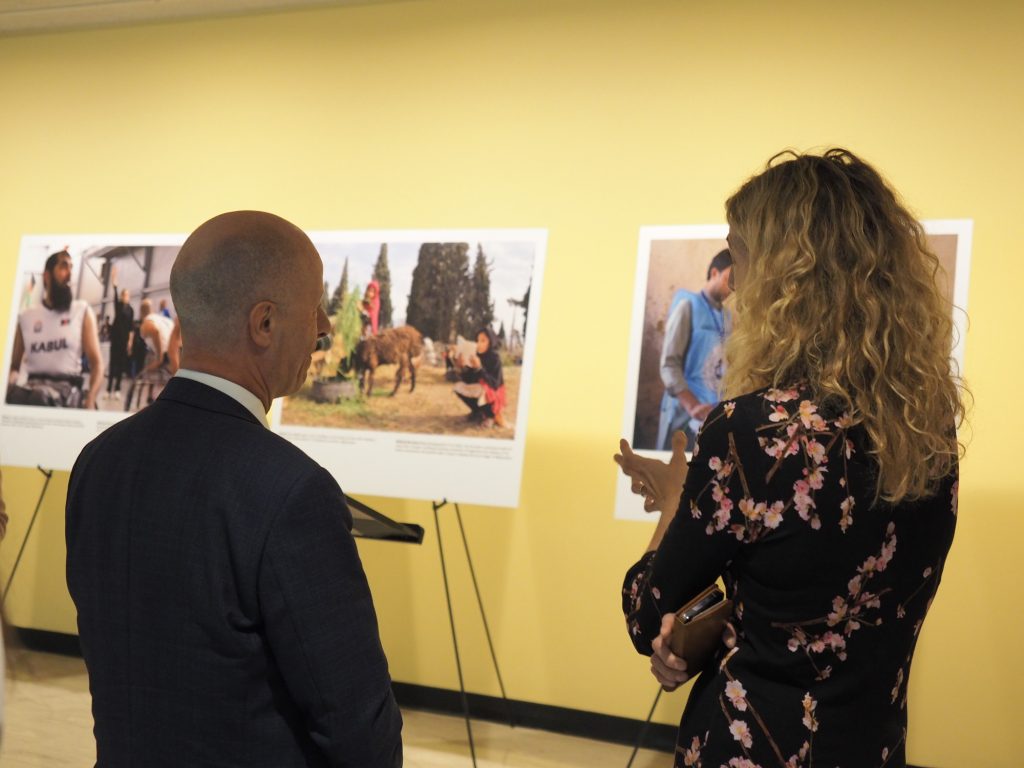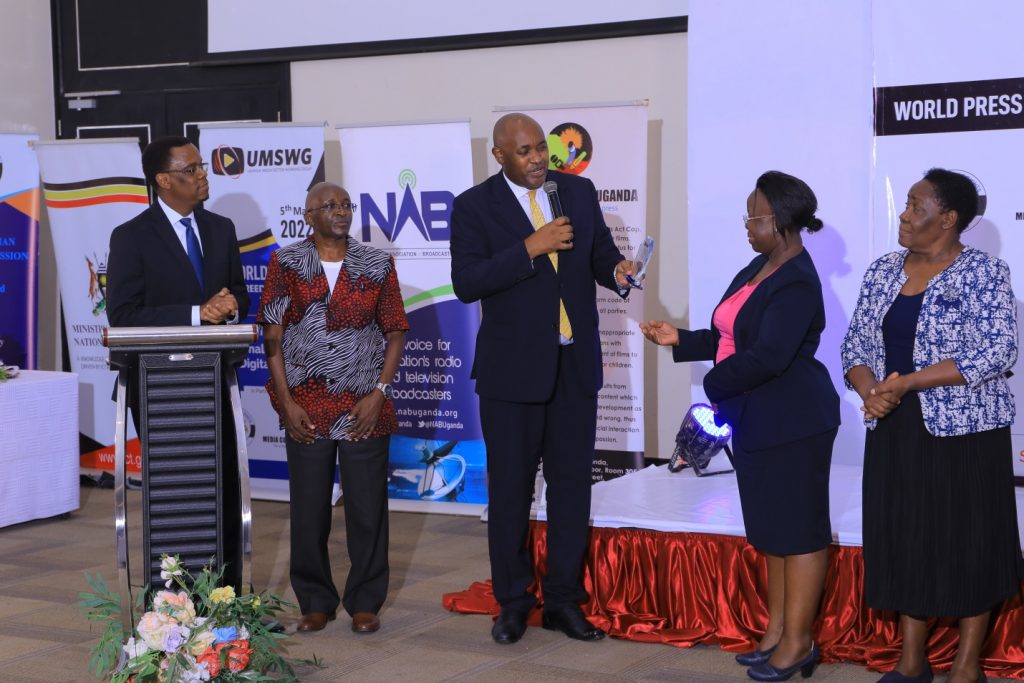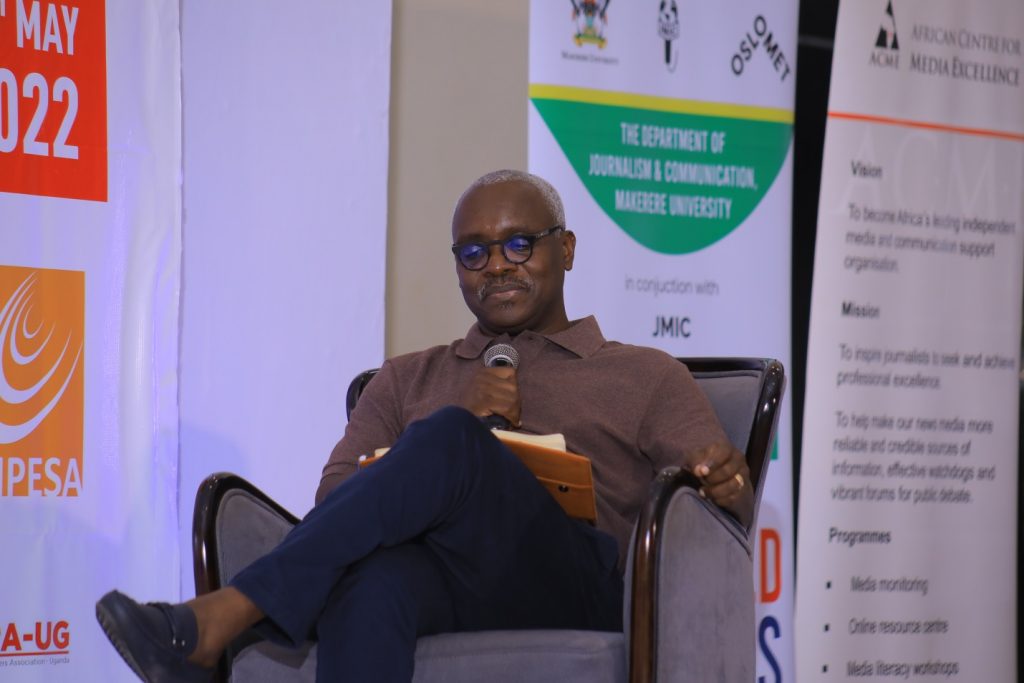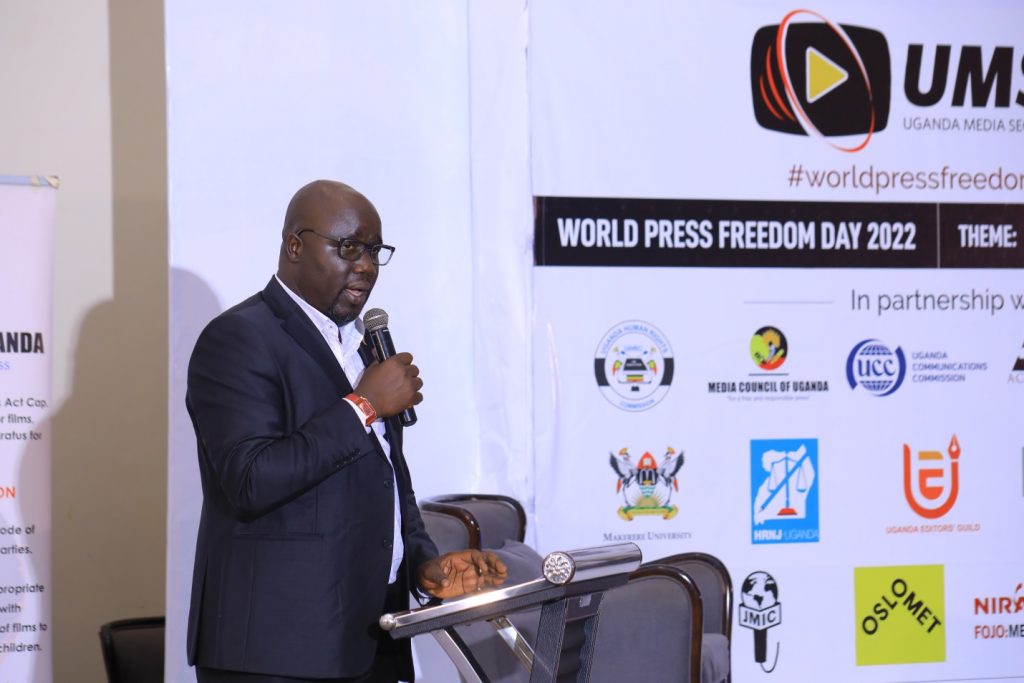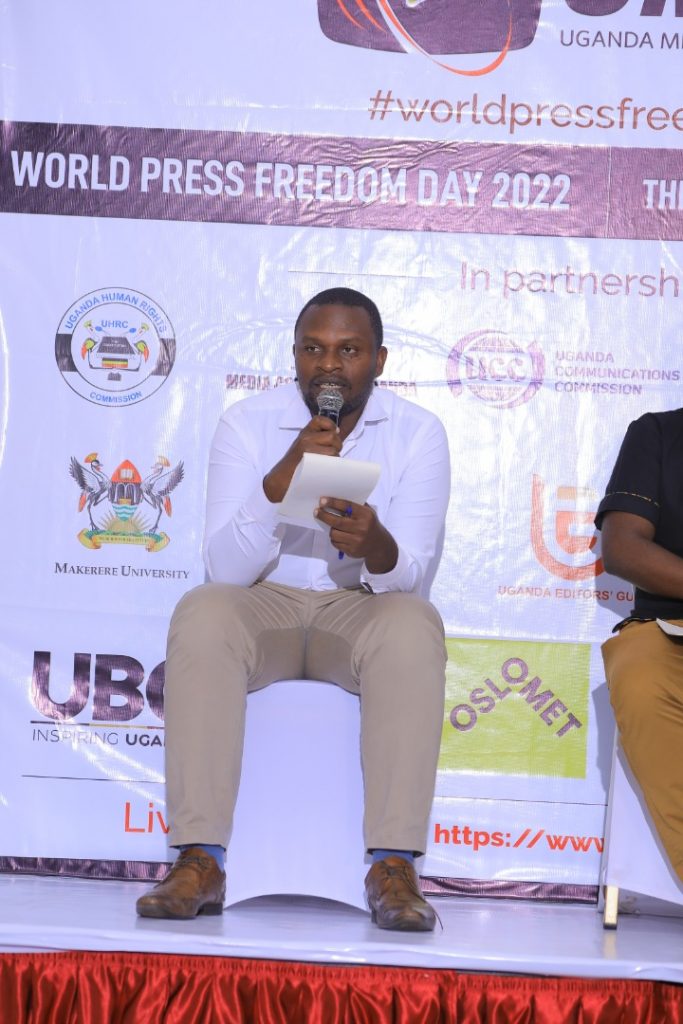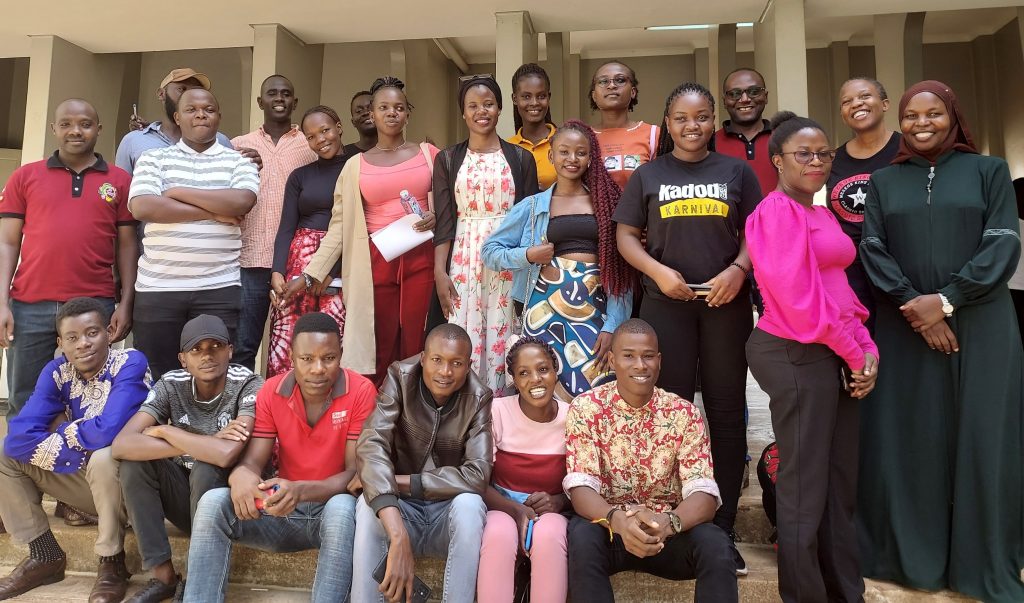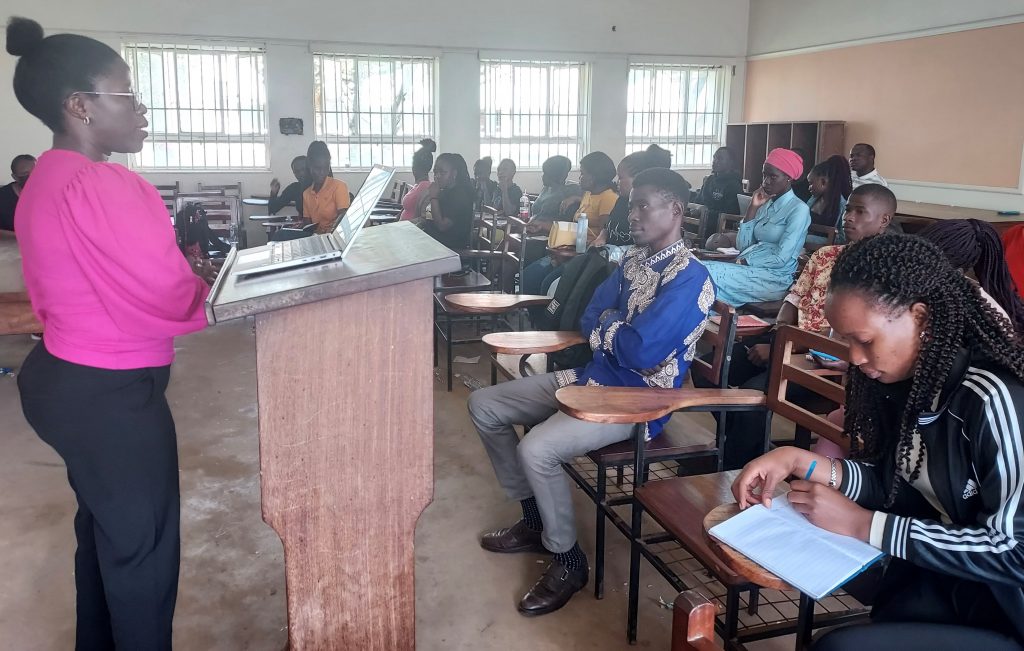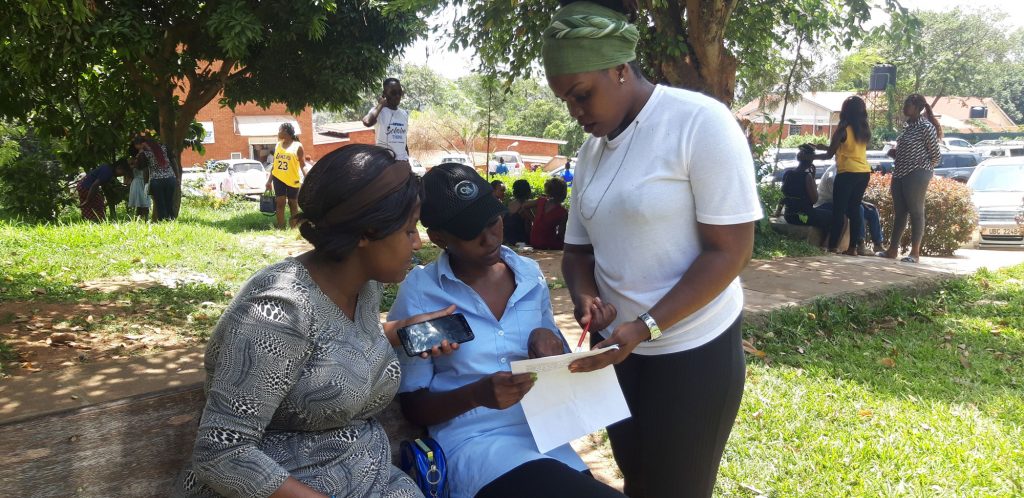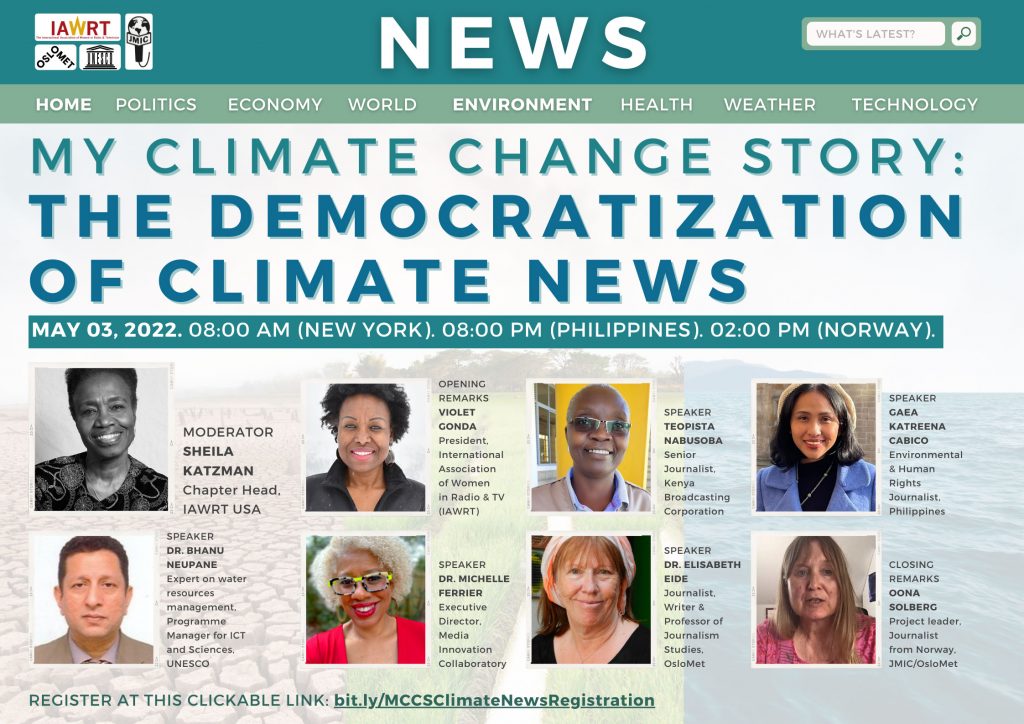Youth Speak Up on Philippine Elections
By: IAWRT Philippines
An online event before the presidential elections in the Philippines 9 May showcased the youth’s views about the elections and their criteria for selection of candidates.
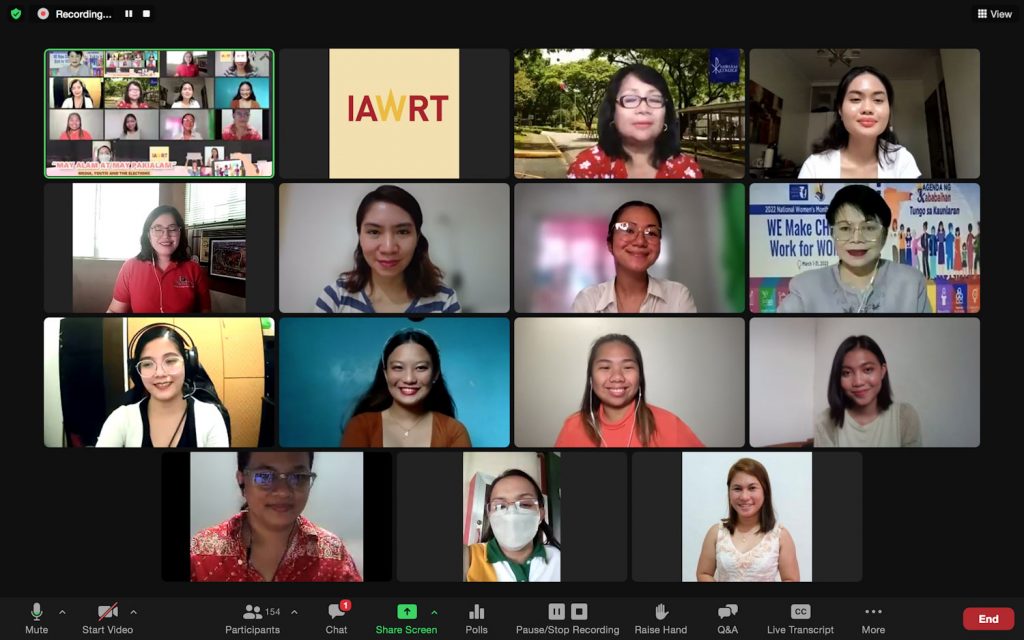
International Association of Women in Radio and Television (IAWRT) Philippines gathered student leaders and communications students from various schools in the country with support from JMIC 28 March.
The two-hour online event “Media, Youth, and the Elections – May Alam at May Pakialam:”
was carried via Zoom and Facebook live. Excluding the speakers and moderators, a total of 203 inviduals was in the Zoom meeting room. Meanwhile, the Facebook livestream on IAWRT’s page was cross-posted by Kodao Productions on their page and garnered 742 views since its publication.
The event drew the participation of women speakers from five schools, namely: Athina Bayles of Wesleyan University, Chantelle Palloran of Miriam College, Marvilyn Medrano of Polytechnic University of the Philippines, Micah-Gel Cadenas Kadano of Cagayan State University, and Daylight Abas of Cavite State University.
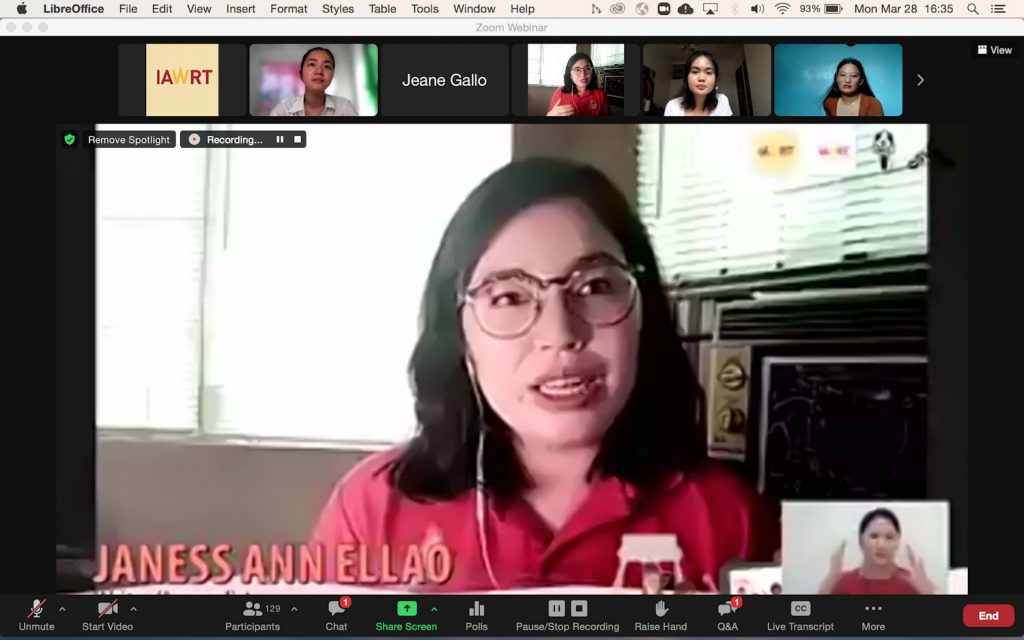
Moderators were IAWRT officers Janess Ann Ellao, a journalist and teacher, and Sonia Capio, also a teacher. producer and radio host. A youth reactor, Sophia Dianne Garcia, also a Filipina and fellow at the University of Notre Dame in Indiana, USA, shared her own insights after the discussion.
Lynda Garcia, head of IAWRT Philippines, and Project leader Oona Solberg of the Journalism & Media International Center (JMIC) at OsloMet delivered welcome remarks during the program.

